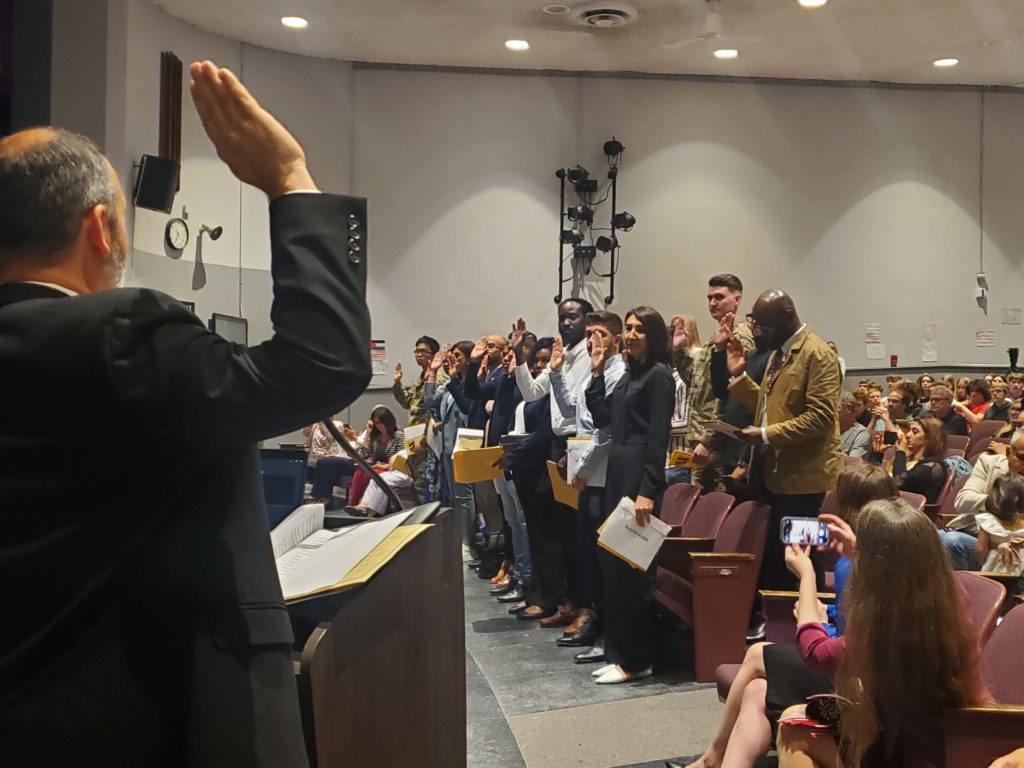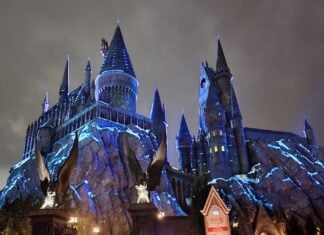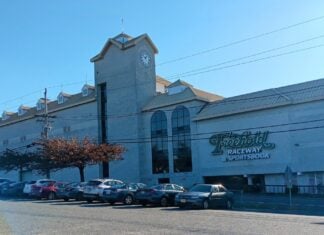
The auditorium at Haddonfield Middle School was lined with flags drawn by students and some from other countries on May 23, but it was an American flag expressing congratulations in different languages that most represented the 24 people who became new naturalized citizens at a school ceremony.
The honorees came from 18 different countries: Burkina Faso, Canada, Costa Rica, Dominican Republic, Ecuador, Guatemala, Haiti, India, Iraq, Jamaica, Jordan, Mexico, Pakistan, Philippines, Russia, Sierra Leone, Turkey, Uzbekistan and Vietnam. They also included two serving in the U.S. military.
When immigrants come to the U.S. and get a green card, they are able to live and work permanently here, according to Field Officer Director Keith Dorr, of the Department of Homeland Security and the U.S. Citizenship and Immigration Service (CIS) office.
“That meant they were legally able to stay in this country their entire life,” he noted. They actually never ever had to become an American citizen, which is important to put into perspective today.”

Flags and greetings lined the walls of the middle-school auditorium as a greeting to the newly naturalized citizens.
Dorr has worked at the CIS for 16 years, and he shared how his faith in the country is renewed every day as he hears how much people love the U.S.
“So many of them give up everything to come to America, and I feel even from my own perspective, as an American born here, sometimes we take for granted our country,” he said.
To become a U.S. citizen, the 24 individuals had to each fill out a 14-page document and prepare for a civics test and a verbal interview to confirm their character and language ability. They must also be lawful, permanent residents for three or five years, depending on marital status. Children under 18 can become citizens once a parent is naturalized.
The process is not cheap: The citizenship application can take several months to process and costs $710 to $760 to file.
Prior to the middle-school’s naturalization ceremony, Dorr had questions for the citizenship candidates: “Why this country? Why did you choose to become a citizen?”
“I’ll say 75% of them spoke about their children,” he explained. “There was a difficult process to immigrate to the U.S., and to make this decision. And some of them had to start over when they got here, but they did it for the children. A lot of them have children that were born here.
“They’re teaching them the values,” Dorr added of the parents, “to appreciate this country. and I remember saying to several of them, ‘Can you imagine what your kids are going to accomplish here because of all of your hard work?'”
New American citizen Alina Bilalova came from Russia 11 years ago to study English, but she quickly fell in love with the U.S.
“I am who I am today because of this country,” she emphasized.
While she is grateful for the foundation Russia provided her, Bilalova was hoping to find her path, to decide what she wanted to do and who she was. She wanted freedom both in speech and in thought.
During the ceremony, Bilalova felt emotional as she thought about how it was not always easy – and sometimes it felt impossible – to be a citizen here due to obstacles like learning the language. And the ceremony brought back memories of how she struggled and the other challenges she faced.
“Whatever I dreamed for, this country gave me this opportunity to make it even bigger than I dreamt,” Bilalova recalled. ” … I’m very grateful and I’m very proud to be the citizen of this country.”









